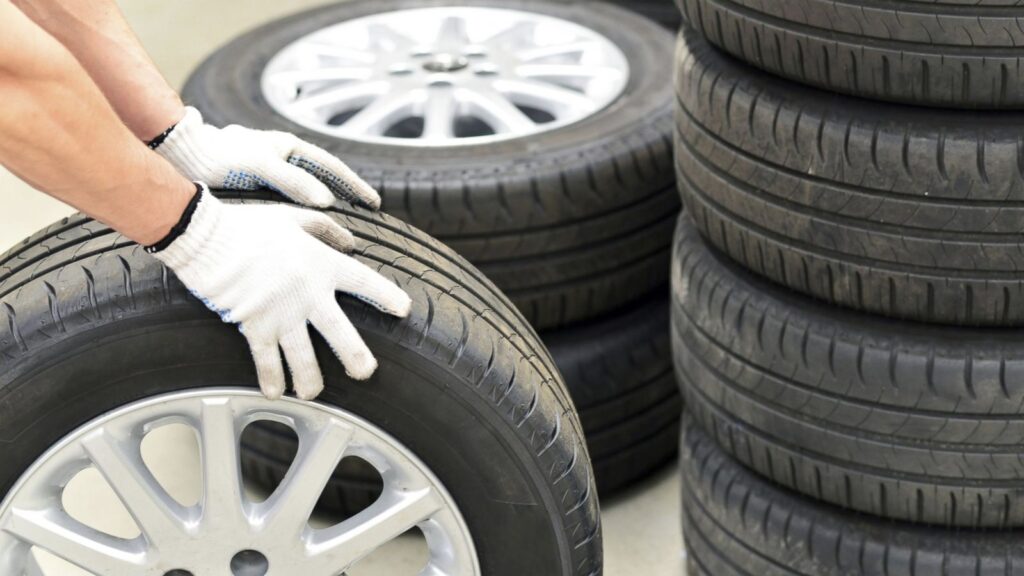Regular tires and run-flat tires differ primarily in how they handle air loss after a puncture.
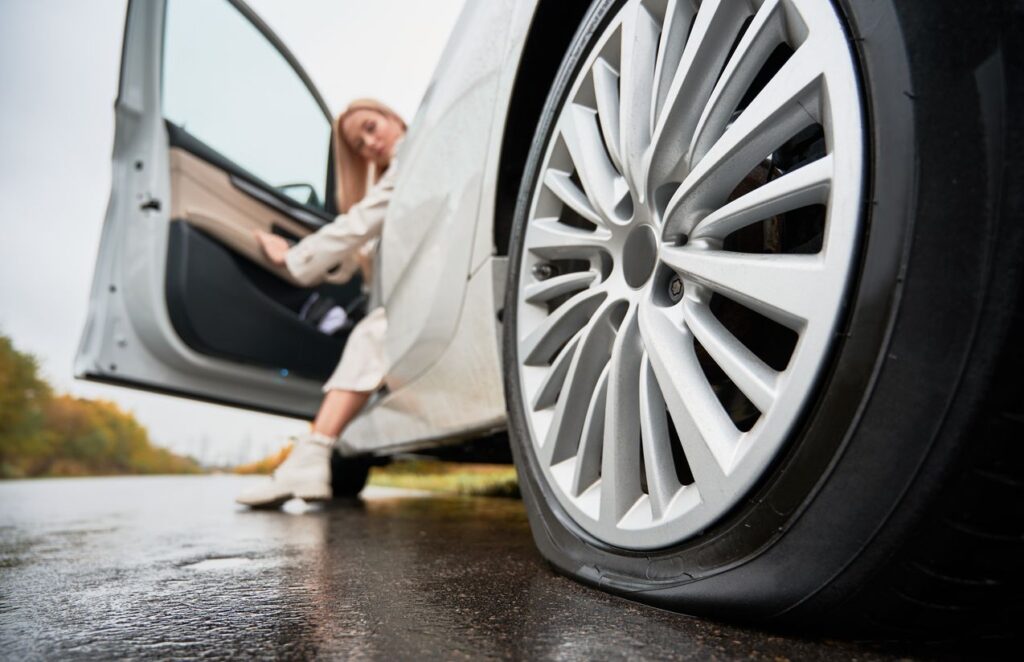
- Regular Tires: These need to be inflated properly to function. If a regular tire is punctured or damaged, it will lose air, leading to a flat tire. This typically requires you to either change the tire or call for roadside assistance to get it fixed.
- Run-Flat Tires: These are designed to continue supporting the weight of the vehicle for a short distance (typically around 50 miles) even after losing air. They have reinforced sidewalls that allow the tire to remain functional for a while, even when punctured. This means you don’t have to change the tire immediately, giving you time to get to a safe location or a repair shop.
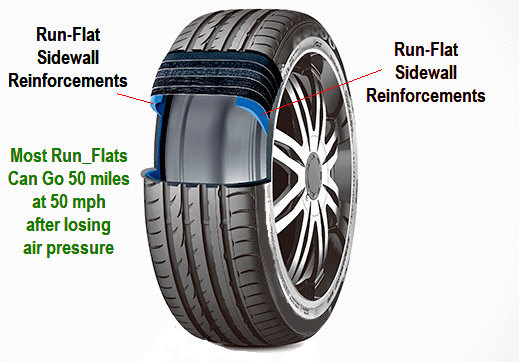
Key differences:
- Convenience: Run-flat tires provide more convenience in case of a flat, as you can continue driving for a while, while regular tires require an immediate fix.
- Comfort: Run-flat tires tend to have a firmer ride because of their reinforced sidewalls, whereas regular tires usually offer a smoother ride.
- Cost: Run-flat tires are often more expensive than regular tires, both in terms of the initial cost and potential replacement.
- Weight: Run-flat tires can be heavier due to the additional reinforcement, which might affect fuel efficiency slightly.
Both types have their pros and cons depending on your needs and preferences!
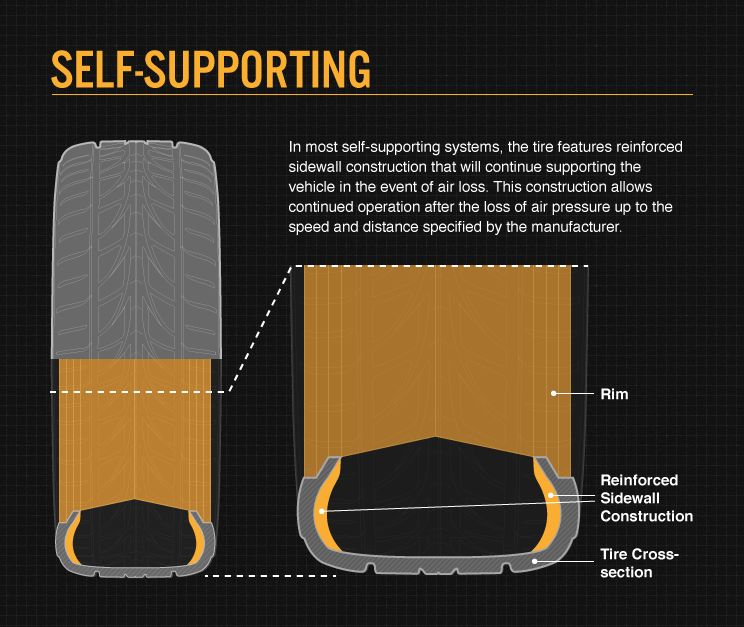
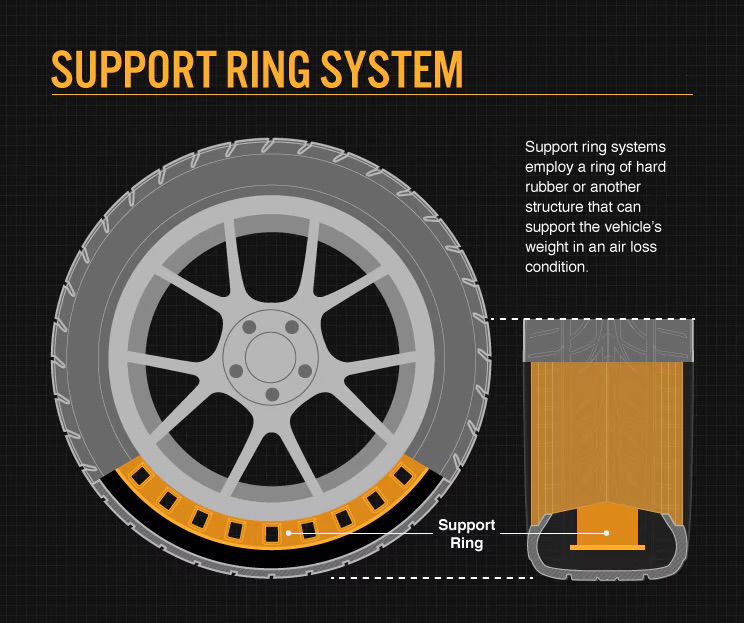
The main difference between run-flat tires and regular tires is that run-flat tires are designed to keep functioning for a limited time even after they lose air, typically for about 50 to 100 miles, depending on the manufacturer. This is possible because of their reinforced sidewalls that support the vehicle’s weight when the tire pressure drops. Here’s a breakdown of the two:
Run-Flat Tires:
- Pros:
- Convenience: You can drive for a short distance even with a puncture, so you don’t need to change the tire immediately or wait for roadside assistance.
- Safety: You don’t need to pull over immediately in dangerous situations since you can still drive at a reduced speed.
- No Spare Tire: Many cars with run-flat tires don’t come with a spare, freeing up trunk space.
- Cons:
- Rougher Ride: Because of the reinforced sidewalls, run-flat tires can feel stiffer and give a rougher ride compared to regular tires.
- Cost: Run-flat tires tend to be more expensive than regular tires.
- Limited Availability: They may be harder to find in certain sizes, especially if your car doesn’t come equipped with them originally.

Regular Tires:
- Pros:
- Comfortable Ride: Regular tires are generally more comfortable because they have softer sidewalls that provide better cushioning.
- Cheaper: They tend to be less expensive than run-flat tires.
- Wider Variety: More options are available for regular tires, both in terms of brands and types.
- Cons:
- Flat Tire Risk: If you get a flat, you’ll need to pull over and either change the tire yourself or wait for assistance.
- No Instant Backup: Without a spare tire, you’ll need to call for help or rely on a tire repair kit.
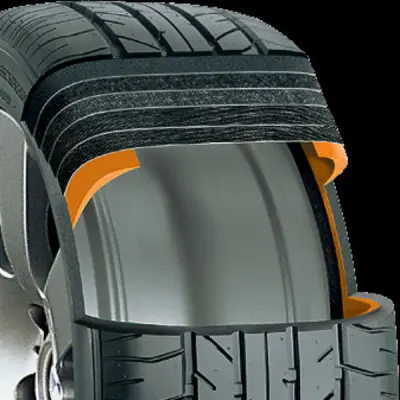
In summary, run-flats offer peace of mind in emergencies but come at the cost of ride comfort and higher price. Regular tires, on the other hand, are more comfortable and affordable but require more attention in case of a flat. The choice often depends on how you prioritize convenience versus ride quality and cost.
Contact Doylestown Auto Repair at 267-279-9477 or visit our website at www.doylestownautoshop.com to schedule an appointment to have your car serviced.
